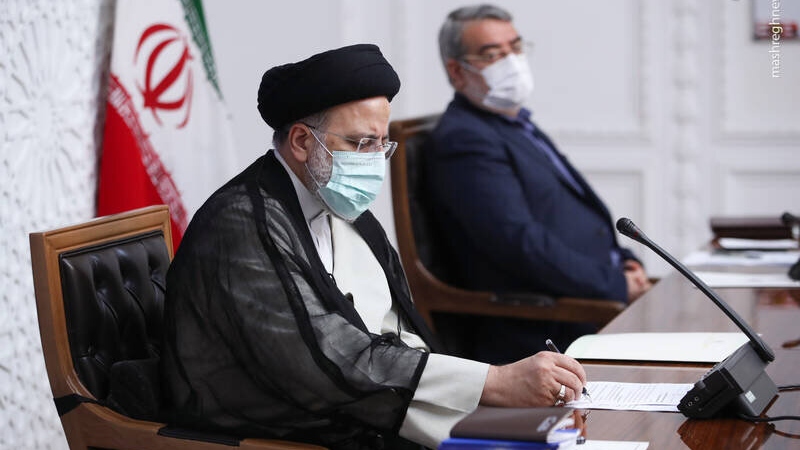Iran is facing a deadly fifth wave of the COVID-19 pandemic amid the lack of vaccines. On Sunday, August 22, Iran recorded 684 new deaths, the highest since the pandemic broke out in March last year.
Iran is witnessing an unprecedented surge in new cases since the first week of April, with over 10,000 being reported each day. By mid-April, the number of new infections doubled (24,000) when compared to the highest recorded so far which was in December last year (11,500). The rate of infections slowed down in May and June but started rising again in July. On August 17, the number of new infections crossed the 50,000 mark. Though it has come down since then, the numbers remain above 35,000 per day. Meanwhile, the country has recorded a consistent rise in deaths since the beginning of August, with an average daily death count of above 500.
According to the Iranian health ministry, Iran recorded 4,677,114 cases of COVID-19 infections until Sunday, and the total number of deaths has crossed 102,038.
Slow vaccination due to sanctions
Meanwhile, in Iran, the vaccination process has been slow as there is a shortage of doses. Iranian officials have claimed that due to the sanctions imposed by the US, Iran is facing difficulties in transferring the required money out of the country to facilitate the import of the vaccine.
Iran started its vaccination drive on February 9, mainly with Russian and Chinese vaccines. The rate of vaccination was relatively low until the second week of July. It has gone up since then, but Iran has administered around 20 million doses so far. Approximately 5% of the population has got both doses, and about 19% received at least one.
Speaking in the parliament on Saturday, August 19, newly elected president Ebrahim Raisi had emphasized that his government’s priority would be to control the spread of the virus. On Sunday, he met the health officials at the country’s National Headquarters for Coronavirus Control. His government is taking steps to expedite the import of vaccines and diversify the sources.
Iranian health officials claimed that they are in advanced talks with Moderna and Pfizer, and the country will get 30 million doses of vaccines by the end of September. It has already imported around 18 million doses of vaccines, according to the country’s health officials. The spokesperson of the National Headquarters for Coronavirus Control, Alireza Raisi, was quoted by Tehran Times saying Iran will be getting at least 30 million doses by the end of September and another 30 million in October. He also said that domestic vaccine production would also increase to 10 to 15 million doses by the end of September.
Alireza confirmed that Iran is also jointly producing vaccines with Cuba and Australia, which will be out in September apart from working on indigenous vaccines.





